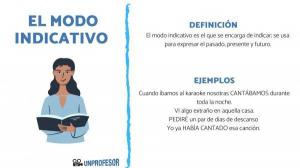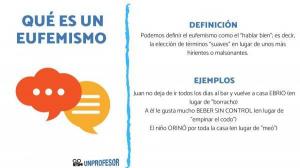SYLLABAS classification
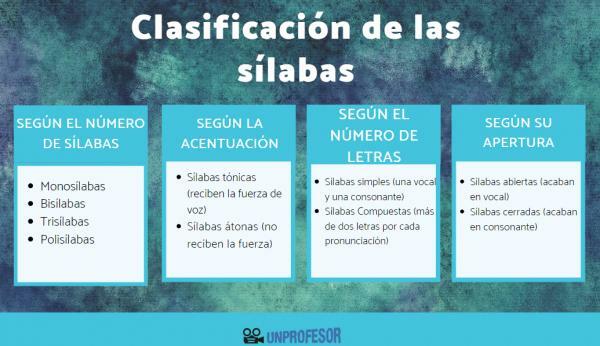
Words can be divided into smaller unitsThese can be the letters that make up each of them or the syllables. In this lesson from a TEACHER we are going to look at what they are and what is the syllable classification in Spanish. To know the language better it is necessary to learn how each of the words are formed and how we can identify them. We hope that through this information you will be able to understand them better.
Index
- What are syllables?
- Classification of syllables
- Classification of words according to their number of syllables
- According to its pronunciation
- Classification of syllables according to the number of letters
- Syllables according to their opening
What are syllables?
Words are made up of syllablesWhat are they phonological units, that is, they have sound and into which all the words can be divided. These syllables will always respond to a minimal joint of sounds that can be articulated. In other words, in order to be articulated, syllables generally have a union between a vowel and several consonants. These syllables will always adapt to the logic of pronunciation.
We can point out that all words are composed of syllables regardless of their length and in all of them we will find always a core. In the case of Spanish, this nucleus will always be the vowel since it is the sound on which we always mark the force in the pronunciation.
Classification of syllables.
It is important to know how to classify syllables and above all to know split a word into them, since it will help us to write correctly, especially if we are doing it by hand and we need to include a hyphen at the end of a line due to lack of space. These phonological units into which all the words are divided can be classified according to different criteria:
- According to the number of syllables
- According to the accentuation
- According to the number of letters
- According to its opening
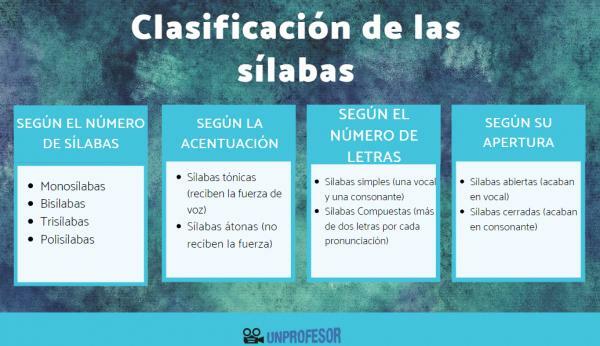
Classification of words according to their number of syllables.
Words can be divided into syllables and these in turn are classified as follows:
Monosyllables
Words monosyllables are those that they have only one blow of voice. That is, the words have only one pronounceable unit. Let's see some examples to understand it better:
- Goal
- Fish
- Sea
- Pub
- Salt
- Sun
- Vine
Disyllables
The bisyllable words are those that have two strokes of the voice when pronounced, that is, they have two phonological units or syllables. These examples will help you understand it:
- Dog
- Home
- Dinner
- Table
- Tree
Trisyllables
For their part, trisyllable words are those that can be divided into three different syllables. They are quite frequent. Look at these examples:
- Lamp
- Rabbit
- Horse
- Bag
- Flowerpot
- Shirt
Polysyllables
Although we could continue dividing the words by adding the prefix corresponding to the number of syllables, when they exceed three the term polysyllable is usually used. Let's see some examples of these:
- Shirt
- Napkin
- High school
- Ca-li-fi-ca-ble
- Weasel
- Disinterested
- Adversity
- E-pis-te-mo-ló-gi-co
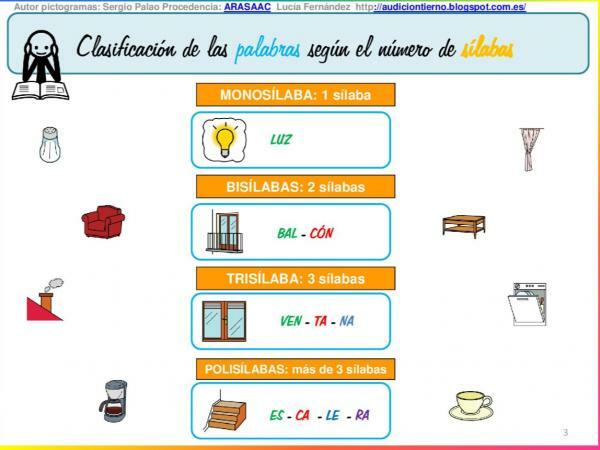
Image: Twitter
According to its pronunciation.
In this case we are going to find a classification based on the intonation of each of the syllables found within the same word. Although the two are part of it, each one has a different intonation. Thus we can distinguish between those that receive a greater voice force and those that receive a regular one. These are:
- Stressed syllables
- Unstressed syllables
Stressed syllables
The stressed syllables are those that receive the force of voice when pronounced. These, therefore, end up becoming the sound nucleus of the word. The prosodic accent is placed on it, making it speak louder than the rest. It is important to know that the syllable with a prosodic accent does not have to have spelling accent or tilde. All words have a prosodic accent, but only some have an accent. Although it should be noted that the orthographic accent, if any, will always be placed on the stressed syllable. Next we are going to indicate the stressed syllable of a few words:
- Ma-more
- AC-sa
- Re-mole-what
- Go-you-laughna-River
- Co-me-gives
- Pa-ja-ro
- Cas-you-llo
- He-AC
- What-der-not
- Su-pli-co
Thus, taking into account this criterion and taking into account where the stressed syllable is located, we can know how words in Spanish are classified:
- Sharp: the stressed syllable is always found in the last syllable, for example, ca-pi-so.
- Plain: the stressed syllable is in the penultimate syllable, for example, ca-mi-I know-ta.
- Esdrújulas: those in which the stressed syllable is in the third to last syllable, for example, cars-ti-co.
- Overdrives: its stressed syllable is always in a place in the word before the third to last syllable, for example, co-mo-da-ment-te

Image: Experience of a teacher
Classification of syllables according to the number of letters.
We can also classify the syllables according to the number of letters that each of them have. So we can find:
- Simple syllables
- Compound syllables
Simple syllables
The number of letters in each of the syllables will help us to know the degree of complexity of each of the sounds. Thus we can point out that simple syllables are those that only have two letters, which are always a vowel and a consonant. Some examples of them would be:
- Dog
- Home
- Table
- Chair
- Weight
- Map
- Father
Compound syllables
Compound syllables are those that present a set of sounds more difficult to pronounce and that have more than two letters for each pronunciation. These are generally made up of two consonants and a vowel. These are some examples:
- Bru-ha
- Cris-such
- Pas-to
- Cos-ta
- Plan-ta
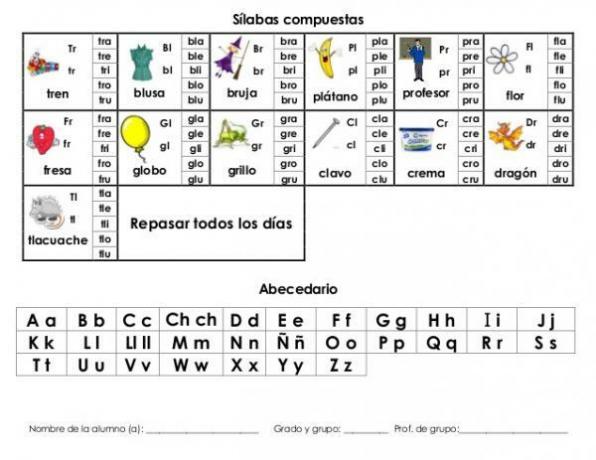
Image: Slideshare
Syllables according to their opening.
Syllables too can be open or closedThis is due to the type of letters that a specific syllable ends with. So we can say that they can have a consonant finish or also a vowel finish. We can therefore distinguish:
Open syllables
Open syllables are those that end in vowel. Some examples of them are:
- Home
- Table
- Bed
- Mo-pa
Closed syllables
Are those syllables that they end in a consonant. Let's see some examples:
- Sen-tir
- Tar-ta
- It is-cri-bir
- Cor-tar
- Dog-tar
If you want to continue learning with lessons such as syllable classification, we invite you to take a look at our sections on Spanish language in which you will find very interesting content.
If you want to read more articles similar to Classification of syllables, we recommend that you enter our category of Grammar and Linguistics.

